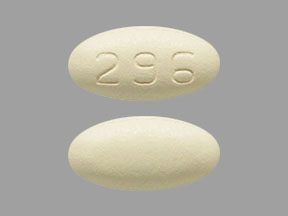
Tarka Coupons & Savings Card – Discount Prices from $49.45
Brand for: Trandolapril-verapamil er
My prescription
Edit
2-240MG, Trandolapril-verapamil ER (30 Tablet Extended Releases)
Select pharmacy

CVS
$71.31
COUPON PRICE
Walgreens
$49.45
COUPON PRICE
Walmart
$139.50
COUPON PRICE
Albertsons
$159.41
COUPON PRICETarka savings card
Show this card to your pharmacist
Walgreens
$49.45
BIN
ID
PCN
GRP
015995
LHKMN930892
GDC
DR33
Powered by
More prescriptions for hypertension
More prescriptions for hypertension
Tarka dosage forms
| Dosage | Quantity | Price from | Per unit |
|---|---|---|---|
| 2-240MG | 30 Tablet Extended Releases | $71.31 | $2.38 |
Tarka Warnings
This medication, trandolapril/verapamil, requires careful consideration due to potential risks and necessary precautions. It is imperative to be aware of the following safety information:
Pregnancy Risks: Taking trandolapril/verapamil during pregnancy can lead to severe, possibly life-threatening harm to an unborn baby. It is crucial to avoid this medication if you are pregnant or planning to become pregnant. Always use reliable birth control methods while on this medication and inform your doctor immediately if you become pregnant.
Angioedema Concerns: Angioedema, characterized by swelling in areas such as the face, throat, and limbs, is a rare but serious side effect. This can be life-threatening if it affects breathing. The risk is heightened for individuals with a history of angioedema, those who are Black, or are taking certain medications like Entresto, sirolimus, or everolimus.
Heart Failure Warnings: Verapamil may worsen heart failure by affecting the heart's ability to pump blood effectively. This risk increases if you have pre-existing heart failure or are taking beta blockers.
Low Blood Pressure: The medication may cause a significant drop in blood pressure, leading to dizziness or faintness. Be cautious if you are dehydrated, on a low-salt diet, have heart failure, are on dialysis, or have been using diuretics for an extended period.
Bradycardia and Heart Block: There is a rare chance of experiencing a slow heart rate or heart block, which can cause weakness or fainting. This risk is greater if you have existing heart conditions or are taking beta blockers or digoxin.
Liver and Kidney Issues: Some users have reported elevated liver enzyme levels, indicating potential liver injury, or worsening of kidney problems. This is especially pertinent for those with a history of liver issues, severe heart failure, or renal artery blockage.
High Potassium Levels: Occasionally, trandolapril/verapamil can increase potassium levels, posing a significant health risk, particularly for individuals with diabetes, kidney issues, or those taking potassium supplements or specific diuretics.
Dry Cough: This medication may induce a dry cough due to elevated bradykinin levels. If the cough becomes bothersome, consult your healthcare provider.
Low White Blood Cell Count: Although not definitively linked to trandolapril, a low white blood cell count has been observed with similar medications, especially in individuals with kidney problems or lupus. Regular monitoring might be necessary for these patients.
Contraindications: Avoid using trandolapril/verapamil if you have a history of angioedema from ACE inhibitors, severe left-sided heart failure, or low blood pressure. It is also contraindicated in cases of specific heart rhythm problems unless a pacemaker is present, as well as when taking Addyi, aliskiren (in diabetic individuals), or within 36 hours of taking Entresto.
In case of overdose or severe side effects, seek emergency medical assistance promptly. Always consult your healthcare provider for tailored advice and to discuss any concerns regarding the use of this medication.
Tarka Side Effects
When taking this medication, some individuals may experience common side effects such as dizziness, lightheadedness, headache, dry cough, constipation, tiredness, and elevated liver enzyme levels. Generally, these effects are mild and should not cause alarm. However, if they persist or worsen, consulting a healthcare provider is advisable. Taking care when rising from sitting or lying positions can help reduce dizziness and lightheadedness. Other side effects that have been reported include nausea, diarrhea, upper respiratory tract infections, stuffy nose, bronchitis, swelling, pain in the arms or legs, back pain, joint pain, and high prolactin levels, which may cause changes in menstrual bleeding patterns, enlarged breasts in males, or milky discharge from the breast in females. While these are less common, it's important to inform a healthcare provider if they occur. There are rare but serious side effects that require immediate medical attention. These include symptoms of severe allergic reactions like rash, itching, swelling (especially of the face, tongue, or throat), and trouble breathing. Angioedema can cause severe swelling, particularly in the face, lips, tongue, throat, arms, legs, or stomach, and may be accompanied by nausea, vomiting, stomach cramps, or diarrhea. Serious heart problems may present as shortness of breath, tiredness, dizziness, swelling, sudden weight gain, chest pain, or slow heart rate. Very low blood pressure symptoms include faintness and pale skin. Signs of liver issues include yellowing of the skin or eyes, dark urine, confusion, or abdominal swelling. Kidney problems might manifest as decreased urination, swelling in the feet, ankles, or hands, and unexplained weight gain. High potassium levels can lead to nausea, muscle weakness, or an abnormal heartbeat. If you experience any side effects not listed here or have concerns about the ones you do encounter, reaching out to a healthcare provider is encouraged for personalized advice and support.
Tarka Interactions
When taking trandolapril/verapamil, it's important to be aware of potential interactions with other drugs or supplements. Inform your doctor and pharmacist about all medications and supplements you use, including over-the-counter ones, vitamins, and herbal products, to ensure safe usage.
Certain drugs, like Aliskiren, Colchicine, Dofetilide, eliglustat, Flibanserin, lomitapide, and sacubitril, should generally not be used with trandolapril/verapamil, as they may lead to significant interactions. Your doctor might choose to prescribe alternative treatments or adjust your current medications.
There are also medications that are usually not recommended for use with trandolapril/verapamil, unless absolutely necessary. If prescribed together, your healthcare provider might adjust the dosage or frequency. This group includes a wide range of drugs such as Erythromycin, Clarithromycin, Lithium, and many others, which can alter how trandolapril/verapamil is processed by your body or vice versa.
Furthermore, combining trandolapril/verapamil with certain medications might increase the risk of side effects, but the combination might be essential for your treatment. In such cases, your doctor will carefully monitor your therapy and may make necessary adjustments. Examples include pain relievers like Ibuprofen or Naproxen, and drugs affecting heart rate or blood pressure.
Lastly, if you are undergoing desensitization for bee or wasp sting allergies, inform your healthcare provider, as serious reactions can occur when combined with trandolapril/verapamil. Always ensure that your healthcare team is aware of all the medications you are taking to manage interactions effectively.
What is Tarka medication used for?
Tarka is a medication used to treat high blood pressure (hypertension). It combines two active ingredients: trandolapril, an ACE inhibitor, and verapamil, a calcium channel blocker. Together, they help relax blood vessels and improve blood flow, which can lower blood pressure and reduce the risk of cardiovascular events.
Has Tarka been discontinued?
Yes, Tarka has been discontinued. It is advisable for patients who were taking Tarka to consult their healthcare provider for alternative treatment options.
Is Tarka an ACE inhibitor?
Tarka is a combination medication that includes an ACE inhibitor. It contains trandolapril, which is the ACE inhibitor component, and verapamil, which is a calcium channel blocker.
Is Tarka still available?
As of the latest information available, Tarka, a medication used to treat high blood pressure, has been discontinued and is no longer available on the market. Patients who were previously prescribed Tarka should consult their healthcare provider for alternative treatment options.
What is the use of Tarka tablet?
Tarka is a medication that combines two active ingredients: trandolapril, an ACE inhibitor, and verapamil, a calcium channel blocker. It is primarily used to treat high blood pressure (hypertension). By lowering blood pressure, Tarka helps reduce the risk of strokes, heart attacks, and kidney problems.
